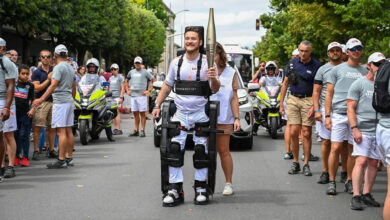
Cyberchondria is actually a common situation in our country. It means being worried about health as a result of the disease research carried out by almost eroding the search engines and diagnosing the disease as if one were a physician based on the information obtained. According to a study conducted by Uskudar University Faculty of Communication in Istanbul, the group with the highest level of cyberchondria was the Z generation. The group with the lowest level was the Baby Boomer generation. This actually shows that since the oldest generation does not have a habit of searching for diseases on the internet, they find it more reasonable to go to the hospital and see a doctor in case of possible health problems.
It is certainly not a coincidence that the Z generation is at the highest level. Because cyberchondria can be evaluated as a pathology that feeds on and triggers internet addiction, and it is inevitable that this digital media addicted generation will suffer from this situation.
Where Does the Conceptual Origin of Cyberchondria Come From?
The conceptual origin of cyberchondria comes from the words cyber and hypochondriasis. Hypochondriasis, which means “disease patient” in the popular expression, meets the expressions of obsessively worrying about health. Cyberchondria also reflects the state of this concept in the cyber environment.
When we look at history, we can learn that cyberchondria was conceptually used for the first time in the article published by Business Wire and was first added to the Oxford English Dictionary in 2012.

What Are the Possible Dangers of Cyberchondria?
False information circulating on the Internet can negatively affect the psychological state of individuals.
Content can be produced on social media platforms and websites without the need for expertise. This situation can cause disinformation in every field. The fact that the information in the field of health is full of mistakes can seriously threaten both the mental and physical health of the society.
Cyberchondria may be the cause of distrust in medical science!
Some patients with cyberchondria do not trust any medical institution and may even come to the point of defying the experts with the information they obtain online. In case of a possible illness, the questioning situation disappears as a result of the intense anxiety they feel, and they think that all the health information they collect from the internet is reliable and they can accept themselves as patients.
After the extremely critical situation, the patient may refuse to benefit from health services and try to treat himself with dubious information, regardless of whether he is really sick or not. If he/she shares what he/she has learned with his/her environment or on the internet, the health of other people may also be endangered.
What Causes Cyberchondria and What Ways Can Be Followed to Dissolve Cyberchondria?
Cyberchondria mainly occurs due to health anxiety. People with this anxiety are looking for solutions on the internet to cope with the disease, and they are not satisfied with the information they have obtained during this search process and enter a vicious circle. As they try to provide the trust they need in health online, the statements of specialist doctors are insufficient for them. The solution to this extremely important issue is hidden in health literacy education.
Giving this education to students in schools enables the correct use of technology and combating health anxiety. However, if they use the Internet at the level of addiction, they need to protect themselves by applying the necessary treatment.
In fact, cyberchondria is a disorder that has the effect of dominoes. In this context, I believe that one should be very careful while sharing health information on the internet. Sharing that you do with good intentions but with wrong content can seriously endanger the lives of people you don’t know. We can protect ourselves from speculation by relying on competent health professionals and science.
Author: Vedat Karabulut






